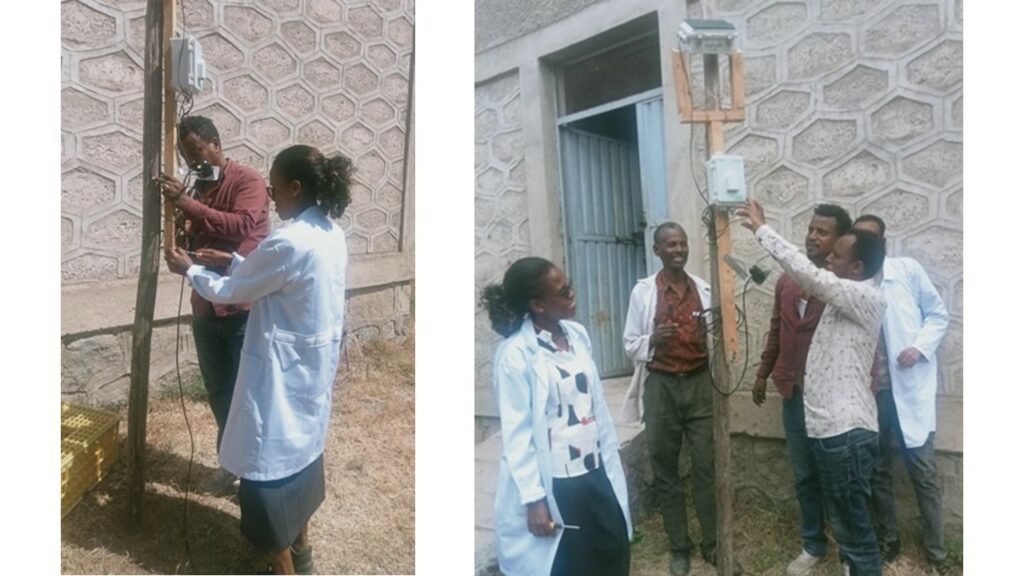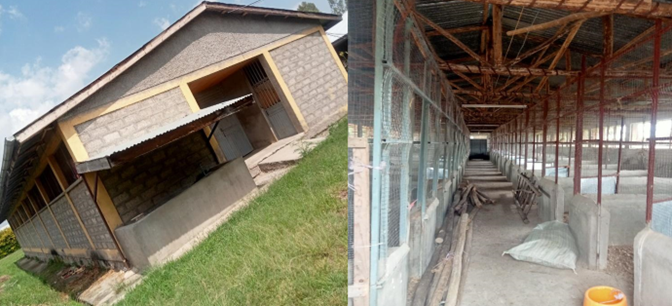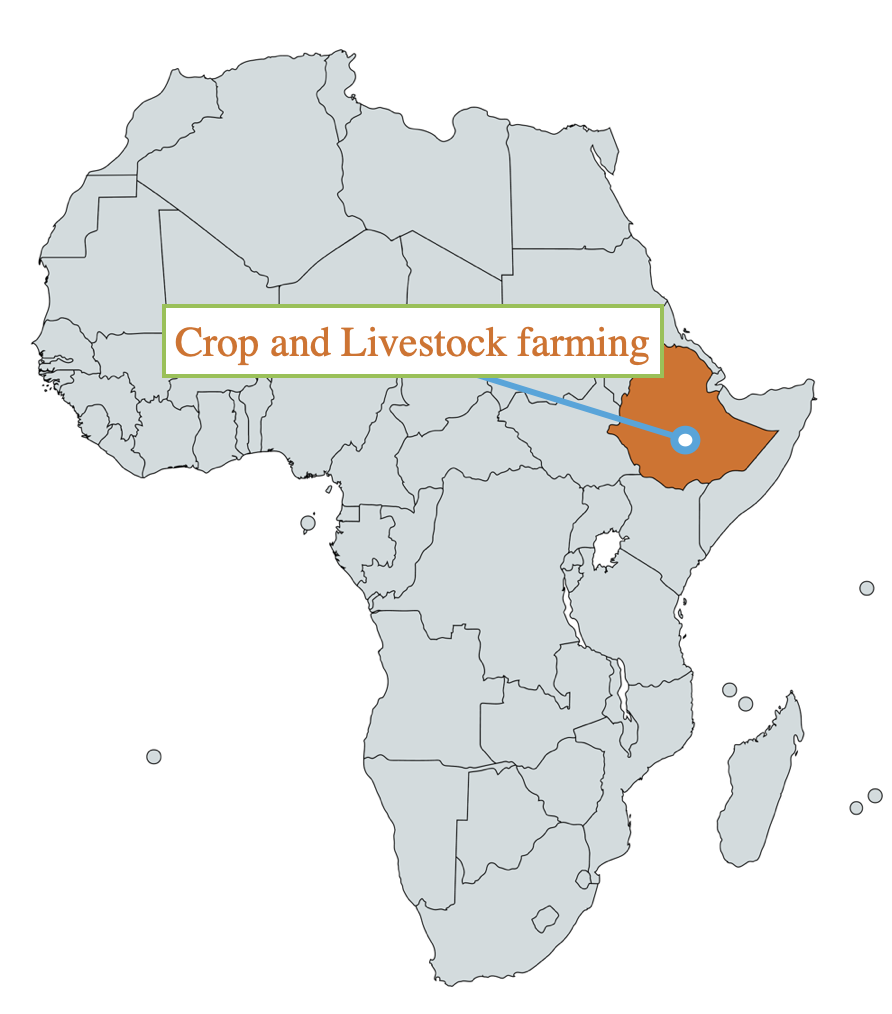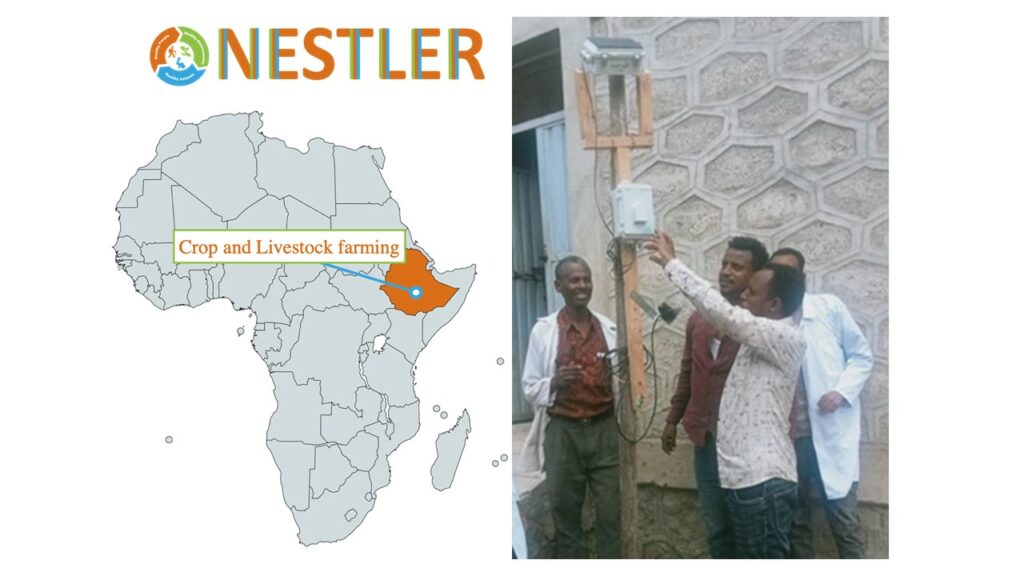The project’s outcomes will be demonstrated on pilot scenarios across six African member states (Cameroon, Uganda, Ethiopia, Rwanda, Kenya, Nigeria). The NESTLER pilot activities in Ethiopia are being led by EIAR (Federal Agricultural Research Institute of Ethiopia). EIAR will assess the impact of insect protein as a potential alternative to traditional farm feed in its two pilot initiatives, specifically P.ETH.1 and P.ETH.2, in collaboration with the MANA and ICIPE institutes.
The first trial, P.ETH.1, is located in Debre Zeit Agricultural Research Center (DZARC), Bishoftu. In that location two (2) SynField smart farming systems were installed. The precision farming system comprises 2 SynField X3 head nodes and 2 SynAir nodes. These devices are equipped with sensors to monitor and record prevailing environmental conditions in a chicken feeding facility. The SynAir devices measure and monitor critical air quality characteristics. The collected data is being sent to an online platform. Then, users can access real time data, including historical data and relevant charts, from anywhere.
Monitoring air quality is vital for optimizing production practices and ensuring livestock well-being. Continuous assessment of important parameters allows to proactively identify potential environmental stressors, enabling timely interventions to mitigate adverse impacts on productivity and animal health.




